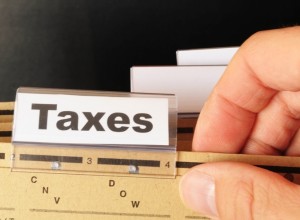 With tax time rolling around, entrepreneurs need every option available to save on their tax bill. A number of businesses overpay in taxes because they do not realize all of the deductions that are available. By using every deduction option, entrepreneurs can save big on their taxes.
With tax time rolling around, entrepreneurs need every option available to save on their tax bill. A number of businesses overpay in taxes because they do not realize all of the deductions that are available. By using every deduction option, entrepreneurs can save big on their taxes.
1. Furniture, Supplies and Equipment
Depending on the type of furniture and supplies, businesses may be able to deduct the entire cost. They should talk with a tax preparer or accountant first to see if the equipment should be depreciated or deducted in full. This option should be used judiciously because buying furniture just to expense it can end up costing the business more over the long run.
2. Business-Related Entertainment
If employees have to wine and dine clients, then businesses have another deduction option. Client dinners, meetings and events can easily cost thousands of dollars. The first step toward deducting these expenses is to save every receipt. If the company is audited, these receipts will be needed to show that the entertainment was actually for a business reason. As an extra precaution, businesses should write down a note about the purpose of the event on the receipt. By doing this, industries that require heavy networking can save a significant amount when they file their taxes.
3. Home Offices
For smaller companies, home offices are often the location where business is conducted. In 2016, the Internal Revenue Service is allowing home offices to deduct $5 for every square foot. This can be for any amount under the maximum of $1,500 square feet for a home office. The traditional method of measuring the office’s square footage can also be used for more savings. This requires the business owner to divide the home’s entire square footage by the square footage of the office. Afterward, this number can be used to calculate the percentage of the rent or mortgage payment that can be deducted as home office space.
4. Automobile Expenses
If your business requires a vehicle, you may be able to deduct the cost of the mileage, tolls or parking fees that you pay. Mileage can be deducted using a standard mileage rate or actual mileage. For the second option, businesses have to keep careful track on their odometer to find the distance of every business trip. In addition, entrepreneurs can also deduct the depreciation, repairs, maintenance and insurance costs of an automobile that is only used for the business.
5. Startup Costs
Every business requires an injection of capital to get started. Unfortunately, many entrepreneurs are unaware that startup expenses can be deducted. Even when the business has not been registered yet, these expenses can be tracked and deducted on the next tax return. Entrepreneurs should keep track of all of the educational courses, business meetings, computer purchases and other outlays that they make because these can be used during tax time. Entrepreneurs can deduct $5,000 of the startup costs from their first tax return, and the rest is amortized over the course of the next 15 years.
All of these techniques require careful record keeping and foresight. Although it takes more time to keep track of receipts and expenses, the payoff is more than worth it for most businesses. By using these techniques, companies can save money on their tax returns and increase their bottom line.
See also: Is a Flat Tax a Good Idea?
 Follow
Follow